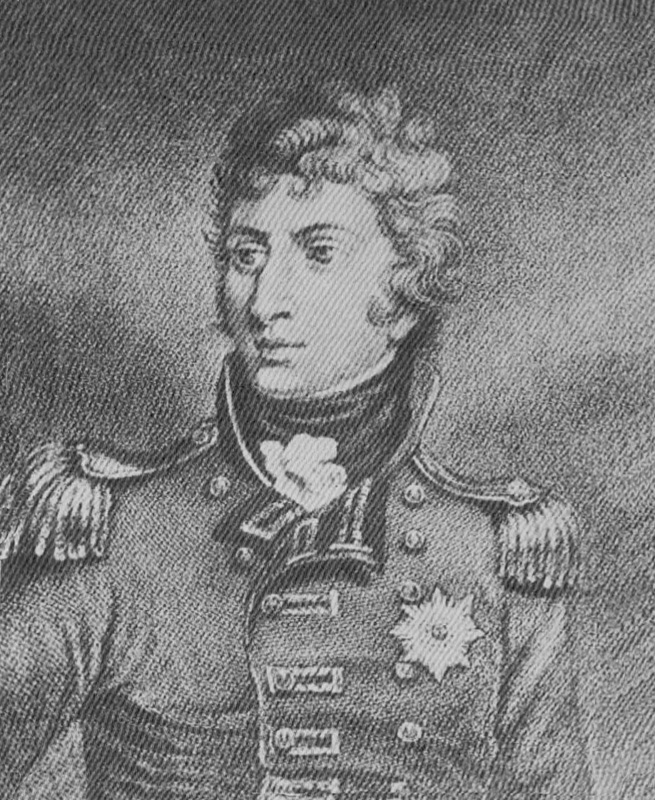
HISTORICAL EVENTS THAT TOOK PLACE ON THIS DAY IN CANADA
31 August

Sir John Sherbrooke (1764-!830)
British Attack Maine
When the United States declared war on Britain in 1812 with the intention of capturing Canada, many people in the New England States were opposed to the war and there was a movement to secede from the Union. This was one of the reasons why the Maritime Provinces were not attacked, except by raiders from the sea.
The Maritimers did not feel the same about attacking the States. They contended that the New Brunswick-Maine border should be the Penobscot River, south of the St. Croix. The United States claimed certain islands in Passamaquoddy Bay that Maritimers felt should belong to Britain.
Late in May 1814, the garrison at Halifax received the news that Napoleon had been beaten and sent to exile. Plans were put into effect to capture Maine, and a force was sent to Shelburne. It was reinforced by more troops from Bermuda brought by Captain Thomas Hardy, one of Nelson's great officers.
There was no problem capturing Eastport. It was defended by only 80 bored soldiers, who were glad to pull down the Stars and Stripes in surrender. Sir John Sherbrooke, the soldier-governor of Nova Scotia, attacked the fort at Castine on August 31, 1814. He had a naval squadron and 1,800 troops. There was little opposition and the British were able to get up the river to Bangor easily. Another force took Machias.
With eastern Maine in British hands, a number of citizens took the oath of allegiance to Britain, so that they could resume trade with British ports all over the world. Castine became the chief customs house, and by the end of the year more than £13,000 had been collected.
When Maine was returned to the States at the end of the war, the money was taken to Halifax and placed in a special account called the "Castine fund." It was used later to found Dalhousie University.
The States made no effort to drive the British troops out of Maine and they lived wit h the Americans in harmony. By this time, both sides were eager to end a war that should never have begun. Negotiations were then taking place at Ghent in Belgium.
OTHER NOTABLE EVENTS ON THIS DAY IN CANADIAN HISTORY
31 August
-1670 Hudson's Bay Company officers arrived at Fort Nelson to establish posts.
-1674 The Council ordered beggars to leave Quebec as the result of a drive by five women.
-1694 The British ship William and Mary defeated seven French warships at Ferryland, Newfoundland.
-1696 The British recaptured Fort Nelson, Hudson Bay.
-1825 Tea brought directly from East Indian ports was sold for the first time in Montreal. This helped to check smuggling from the United States.
-1859 British Columbia put the Gold Fields Act into force.